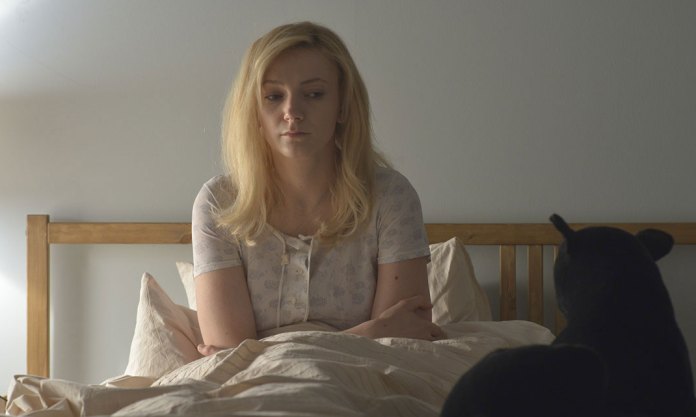Though considered a prestigious accolade, winning the Golden Bear at the Berlin Film Festival does not necessarily guarantee a certain level of quality, with critics often taken by surprise when the more resourceful, better films are left empty handed (Black Coal Thin Ice winning over Boyhood is emblematic of this notion). Though in the case of On Body and Soul – directed by Hungarian auteur Ildiko Enyedi – it’s hard to argue against it, for this visceral, evocative drama makes for a unique cinematic experience.
This unusual love story takes place in a slaughterhouse, and focuses in on Endre (Géza Morcsanyi), who spots a new face amongst the crowd; the company’s new quality controller Maria (Alexandra Borbély). He lives alone, and with a disability given he only has one functioning arm, and Maria is obsessed with cleanliness, and while seemingly polar opposites, they connect thanks to a sharing of the very same dream, bringing them closer together. Though while he seeks a relationship, she’s struggling to overcome a fear of a physical kind, uncomfortable with being touched, seeking a way to channel her emotions and feel ready to fall in love.
 Enyedi lingers on every little touch, such as every time Maria cleans a surface in her house, as though we adopt her gaze, focusing on the small, seemingly innocuous moments that cause her such psychological strife. This unique exploration of love is far from conventional, for what these two crave is companionship, somebody to lie next to, not necessarily with. There are phone-calls at night to say they’re going to sleep as it seems they just want somebody to share their life with – and it makes the paramount romantic narrative all the more affecting and it feels more genuine, more about what these two need, as opposed to what they merely want.
Enyedi lingers on every little touch, such as every time Maria cleans a surface in her house, as though we adopt her gaze, focusing on the small, seemingly innocuous moments that cause her such psychological strife. This unique exploration of love is far from conventional, for what these two crave is companionship, somebody to lie next to, not necessarily with. There are phone-calls at night to say they’re going to sleep as it seems they just want somebody to share their life with – and it makes the paramount romantic narrative all the more affecting and it feels more genuine, more about what these two need, as opposed to what they merely want.
The film does feel somewhat repetitive in parts, though even the tedium that exists feels deliberate, to evoke the monotony of their everyday life – at least until the other steps into it. This enforces the need for their coming together, as though they have to find each other to break out of this routine. So while the opening act lags a little, it slowly picks up pace, and by the close of play you’re just desperate for them both to be together, and more importantly, to be happy. Which, when dealing with a romantic tale of this nature, makes for a job well done.








